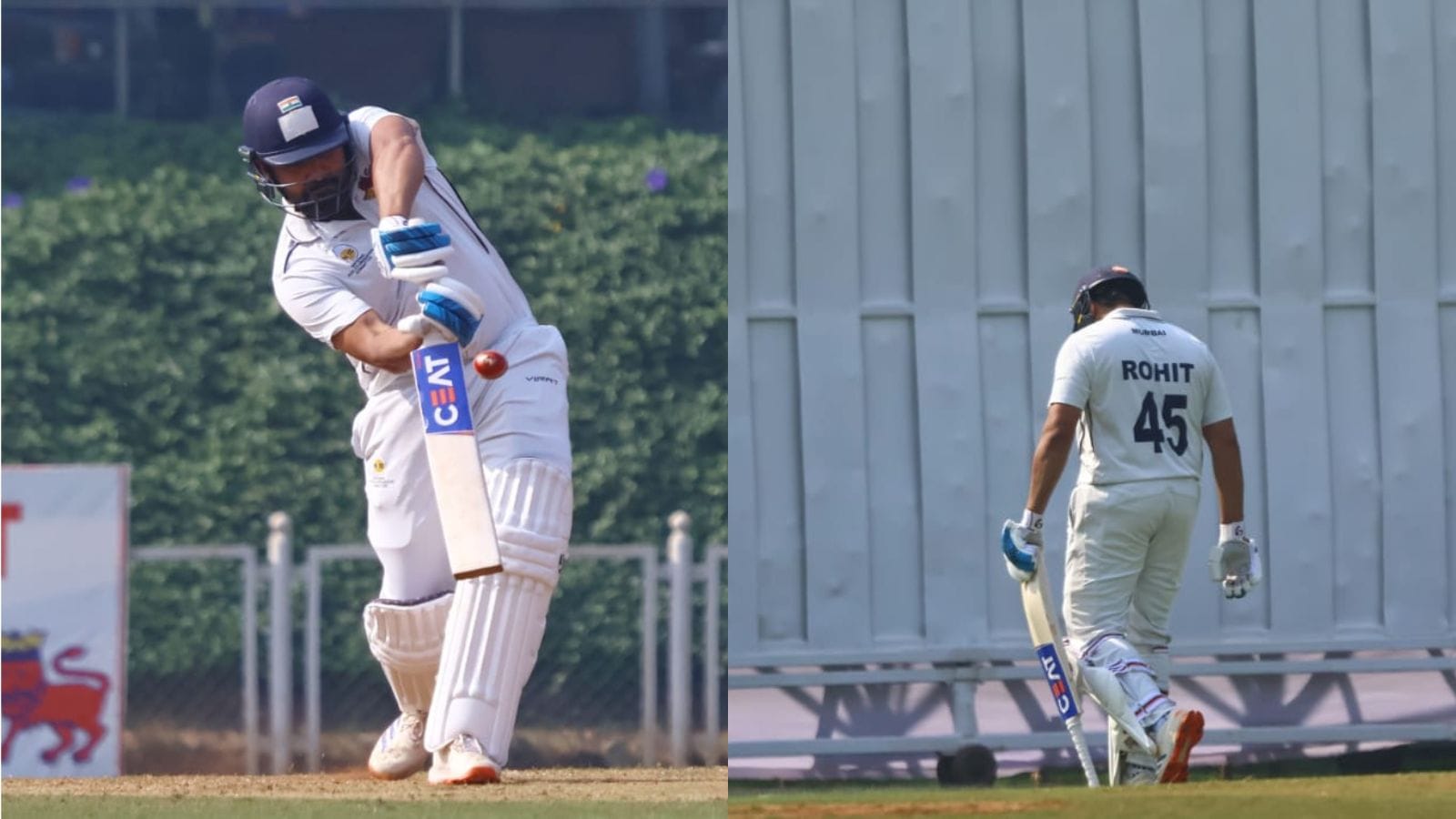 |
|
The Ranji Trophy match between Mumbai and Jammu & Kashmir unfolded as a captivating spectacle, attracting a significant crowd despite being held in a business district. The high anticipation centered around the performance of India's opening batsmen, Rohit Sharma and Yashasvi Jaiswal, who were playing for their Ranji Trophy team. However, their contributions proved to be a frustrating experience for Mumbai fans and a missed opportunity to boost the team's chances in the tournament.
Mumbai's first innings ended poorly, with a total of only 120 runs, leaving them with a substantial deficit. Their bowlers showed improvement in the second innings of their rivals by wrapping up J&K for 206 runs quickly in the morning session. Despite this, the task was clearly defined for Rohit and Yashasvi: to not only erase the 86-run deficit but also to provide a solid foundation for Mumbai's fightback. Regrettably, both batsmen failed to deliver on this crucial expectation.
Rohit Sharma, who had a short innings in the first match (28 minutes), displayed an aggressive approach in the second innings, lasting slightly longer at 70 minutes but only managing a score of 28. His innings demonstrated a risky playing style, a blend of audacious stroke play and moments where he nearly gifted his wicket. An early dropped catch by Umar Nazir when Sharma was on 1, presented Rohit with a chance to capitalize. He did so with a series of stunning shots including a trademark pull shot that cleared the deep backward square fence and several well-timed boundaries that showed moments of brilliance despite the precarious situation.
Rohit's strategy shifted between aggressive stroke play and a more cautious approach, adapting to the conditions of the pitch that offered bounce and swing. His trademark six over long-off and a glorious loft over the bowler's head were both indications of his powerful hitting. However, he seemed to switch to a more protective approach, showing a change in playing style from the earlier stages of his innings. It was during this conservative phase, that he was caught by Abid Mushtaq off Yudhvir Singh on 28 runs which ended his innings. The ball caught the inside half of the bat, and a high chance that offered a simple catch for the fielder.
Yashasvi Jaiswal, too, followed a similar path of aggressive stroke play, attempting to accelerate the scoring rate despite the team's precarious position. His 26 runs also reflect the team's overall struggle for consistency and a lack of steady batting in the second innings. His dismissal, caught at gully while trying a cut shot, further highlighted the challenging conditions and the aggressive approach that didn't fully yield the desired outcome for the team.
The match showcased the tension and excitement inherent in the Ranji Trophy. The large turnout of office workers, who temporarily put aside their jobs to witness Rohit Sharma play, underscored the popularity of this tournament and the public's continued interest in the game. However, for Mumbai, the match served as a sobering reminder of the challenges they face, jeopardizing their chances of securing another Ranji Trophy title this year, given their current position in the tournament.
The missed chances offered by dropped catches played a significant role in the match's outcome. The dropped catch of Rohit early in his innings was particularly costly, giving him the opportunity to score vital runs for his team. Such instances, while part of the game, highlight the fine margins that define success and failure at this high level of competition. For Jammu and Kashmir, the dropped catch proved to be a missed opportunity to further restrict Mumbai's score and improve their own chances of victory. The entire match underscored the importance of both individual skill and taking all presented opportunities in competitive sports.
In conclusion, the Mumbai versus Jammu & Kashmir Ranji Trophy match served as a compelling demonstration of the captivating nature of cricket, the unpredictable swings of the game, and the pressure faced by even the most talented players. For Rohit Sharma, his aggressive approach, while showcasing glimpses of his brilliance, ultimately proved to be a double-edged sword. While for Mumbai, it furthered their struggles in the tournament, potentially leading them towards an earlier-than-expected exit from the competition.
